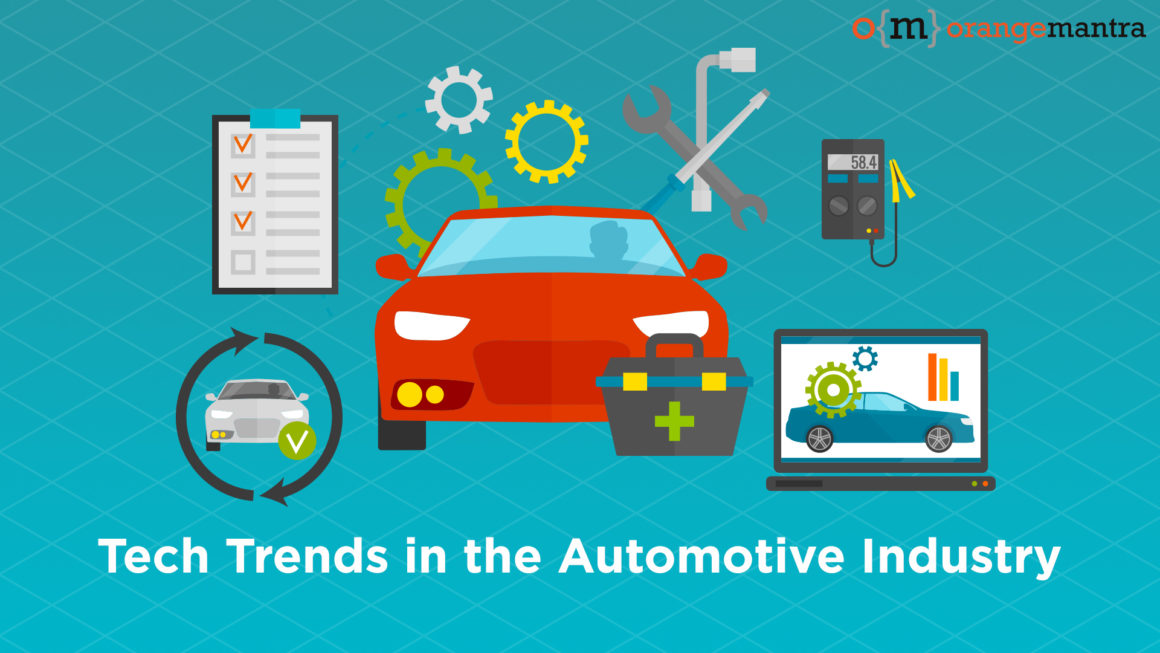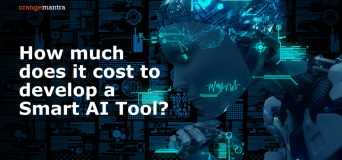Digital technologies are revolutionizing businesses today, with every vertical witnessing disruptive changes in one or more ways. The automotive segment is no exception as it is fast becoming digitally-enabled, with the focus being entirely on connectivity in mobility. While the technology of the Internet of Things is coming to the forefront, others like Machine Learning, Artificial Intelligence, Predictive Analysis, Blockchain and more are also driving digital transformation for this vertical. Let us unravel the top tech trends that are poised to transform the automotive industry in 2019.
Connected vehicles
The IoT technology is having an impact on almost all industries and automotive is one of them. It is emerging as the driving force behind smart, connected cars. Connected vehicles refer to the ones that are empowered with Vehicle-to-Vehicle communication. As suggested by the name, these are capable of communicating and sharing details related to on-road conditions, traffic jams, weather, and more, making driving simpler, safer, and smarter. Vehicles get signals from other vehicles on the same route that caution them regarding conditions such as potential crashes, bad weather, etc.
Predictive Automobile Technology
Another set of technologies that is all set to proliferate the automotive sector is Artificial Intelligence and Machine Learning. These technologies can be leveraged for customizing the driving experiences. This is done by implementing algorithms which understand the driver’s preferences and aligns the infotainment framework and application preferences accordingly. Further, predictive technology can also be used to forecast the vehicle maintenance requirements and notify the owner when a service is needed.
Autonomous Cars
The concept of autonomous cars does not seem too distant now. Automotive majors are conceptualizing and working on the innovation of self-driven cars that utilize high-tech sensors, cameras, brake actuators, laser scanners, and similar devices to navigate on their own. Beyond bringing luxury and convenience for the vehicle owners, the adoption of this technology can decrease traffic and reduce the number of road accidents once they become mainstream.
Blockchain
The Blockchain technology is all set to take the automotive segment to the next level. It will resolve the challenge of fake auto parts circulating in the market, which is something that the industry has been battling for years now. Blockchain will soon be leveraged within the supply chain of the industry to detect the suppliers who sell such fake parts and eliminate them from the system. This will enhance transparency as well as bring efficiency in the pricing strategies.
Augmented Reality
With digital marketplaces becoming a part of this industry, buyers are now comfortable with the concept of exploring the options online before stepping into showrooms. This is where the technology of Augmented Reality comes in as it can be used to deliver interactive “test drive” experiences for prospective buyers. This will be a huge benefit for dealers as they would need to carry less physical inventory while automotive brands would be able to reduce the number of dealers. AR is also being used in vehicle design to create vehicles that deliver the highest levels of safety.
Big Data
Another technology that is making inroads into the automotive segment is that of Big Data. Equipped with the technology, the vehicles of the future will be able to find destinations, traffic patterns, relevant routes, nearby gas stations and favorite restaurants based on their preferences. An algorithm will be used to match their driving data with these parameters to cater to the drivers what they would exactly expect.
Mobility-As-A-Service
Beyond manufacturing, sales, and driving experiences, another aspect of this industry that will witness a tech transformation is shared transportation. The mobility distribution model will get disrupted due to the growing adoption of the Mobility-as-a-Service (MaaS) concept. In this model, the transportation needs of an individual will be addressed with various options such as on-demand car sharing, mass transit, and ride hailing. All these options are being bundled up in a single integrated solution that is available to the users in the form of a smartphone app. Beyond just cost savings for the users, shared transportation has a far-reaching impact as it can reduce the traffic congestion, pollution, and demand for parking.
Biometric Seat Technology
This innovative technology transforms driving experiences and makes them more comfortable and secure. It gathers the real-time biometric data of the driver from the seat, steering wheel, clutch, and accelerator. The data is analyzed and leveraged to identify the anxiety levels if the driver. Accordingly, the vehicle issues warnings instructing them to be more careful or take a break whenever needed.
Conclusion
Considering these innovative trends that are likely to surface on the automotive scenario ahead, it becomes imperative to embrace them sooner rather than later. If you are a part of this industry, taking up digital transformation should be on top of your agenda right now. However, this is possible only if you have a technology partner that you can rely on.
At OrangeMantra, we offer advanced technology consulting and strategy services to enable digital transformation for businesses. During two decades in the industry, we have served a number of clients from the automotive section. We not only understand their core tech infrastructure, but also are aware of all the latest technologies that clients in this sector need to embrace. Share your requirements with us and we will help you embark on a transformative journey.






















